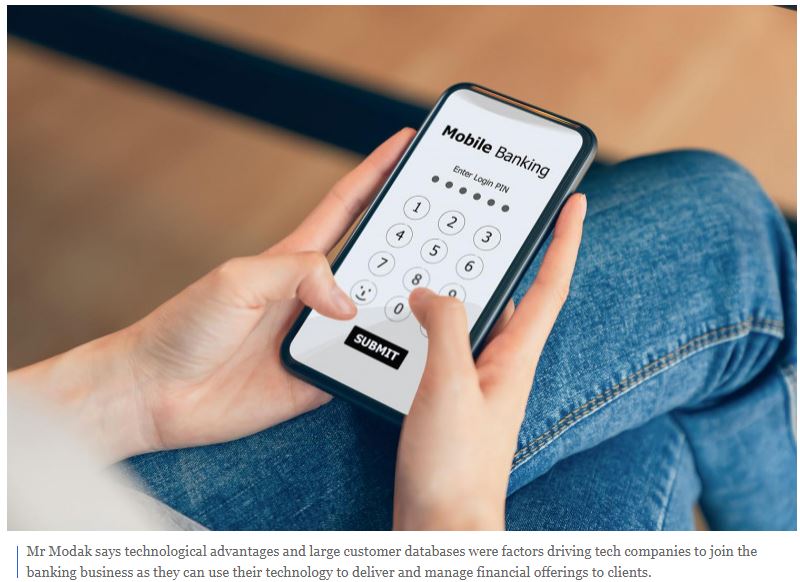Thailand: Regional banks driven to step up digital services
Banks in Thailand and elsewhere in Asia-Pacific are being pressured to improve their digital banking services in 2023, as more tech companies are expected to join the industry amid the use of cloud technology, says cloud banking platform Mambu.
Mambu’s annual “Partner Predictions” report indicated tech firms are among the new players competing with traditional banks this year thanks to advanced technologies in financial services and growing demand for digital banking across the region, especially in Southeast Asia.
Many non-banks, including retailers, telecom providers and tech companies, now offer banking services, said Abhiram Modak, chief principal consultant of BFSI Persistent Systems, who was surveyed by Mambu.
“When a retailer is allowing you to defer payments for the things you buy, they are actually giving you a loan,” he said.
Mr Modak said technological advantages and large customer databases were factors driving tech companies to join the banking business as they can use their technology to deliver and manage financial offerings to clients.
“A case in point is Apple and Facebook. When these established brands introduce banking products, they often provide a seamless and convenient alternative to their customers,” he said.
Several key tech players have crossed into the banking industry in Asia, while Grab, AEON and Sea Group have become part of conglomerates that hold digital banking licences. Mambu attributed part of this shift to the rise of super-apps, which provide financial services such as e-wallets.
Super-app ecosystems often include their own e-wallet offerings, such as WeChat and Alipay in China and Grab and GoTo in Southeast Asia, said Dan Jones, partner at Oliver Wyman Digital, in the report.
“Some 72% of countries have their own real-time payments schemes and in 2023 I expect these to extend across borders,” he said.
Real-time cross-border payments today are rare, mostly via bilateral links such as Singapore’s PayNow and counterparts in Thailand, Malaysia, India and the Philippines.
However, multilateral agreements are in the offing. Asean central bank governors have signed an agreement for a true cross-border system using QR codes, said Mr Jones.
Pham Quang Minh, general manager of Mambu Thailand, said 2023 should be a promising year for Thailand’s financial landscape.
“This year’s spotlight will be on digital banks, which are expected to be fully licensed and start operating in 2023. We are looking forward to seeing how innovation can make financial services simpler, more inclusive and accessible for everyone,” he said.
While aiming for more effective digital transformation, this year traditional banks are likely to focus on creating their own interfaces and making them more engaging to increase brand loyalty, the report found.
“We expect more organisations to leverage cloud-based data and analytics to derive market insights and develop seamless, personalised customer experiences,” Conor McNamara, managing director of Amazon Web Services for Asean, said in the report.
“Covid-19 has driven the adoption of public cloud technology in Asean’s financial services sector as more banks build digital services to keep pace with the growing internet economy.”
According to a recent survey by Publicis Sapient, an American digital consulting firm, 44% of banks based in Southeast Asia are looking to adopt a modern cloud-based core banking structure, while 38% are prioritising better use of data and analytics to gain more understanding of clients.
“Customers’ expectations for digital services from their banks will continue to grow in parallel with the technological advancements they experience using in their daily lives,” said Peter-Jan van de Venn, senior director of global banking strategy at digital consultancy Mobiquity.
Source: https://www.bangkokpost.com/business/2474839/regional-banks-driven-to-step-up-digital-services


 Thailand
Thailand




